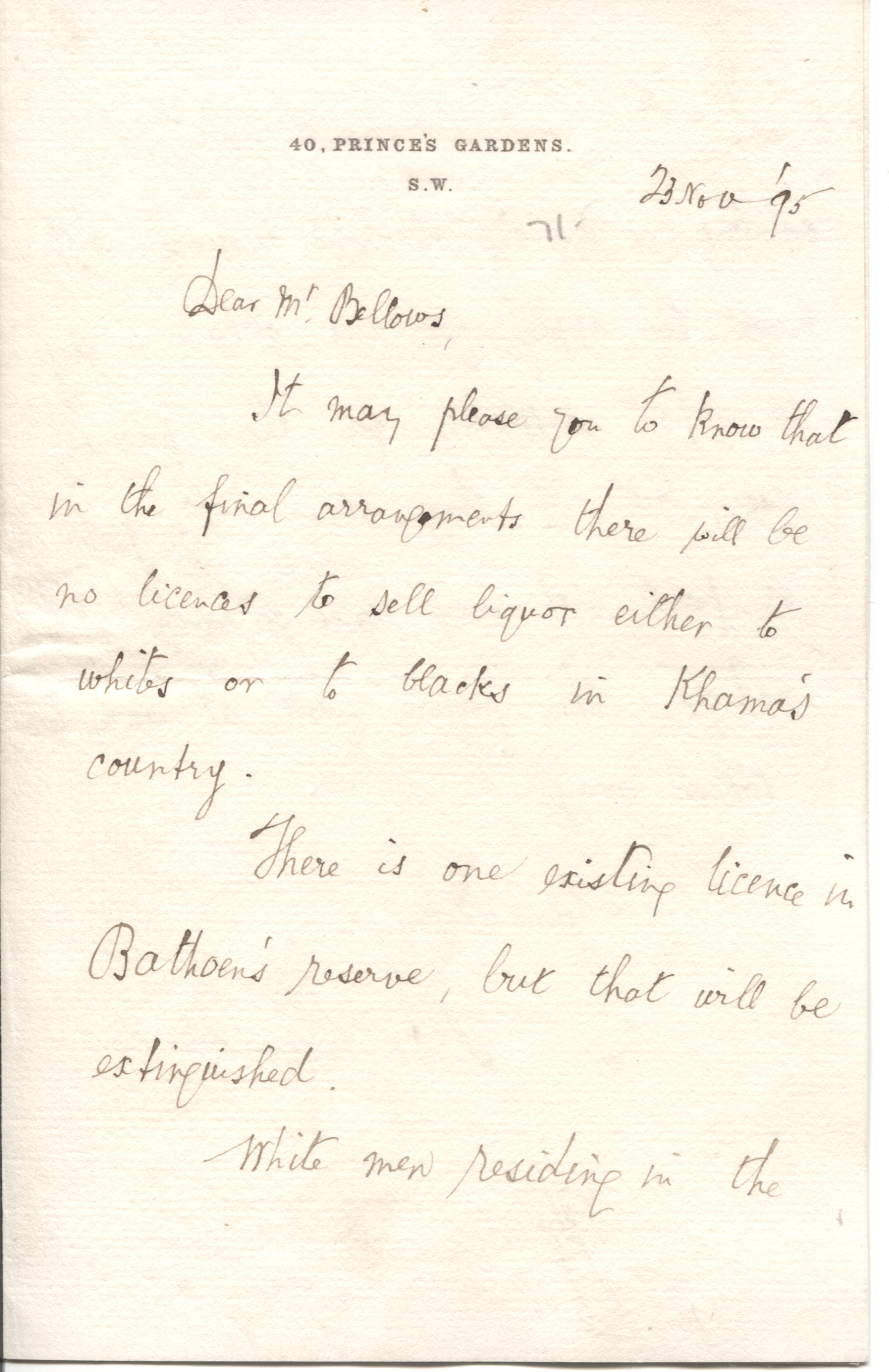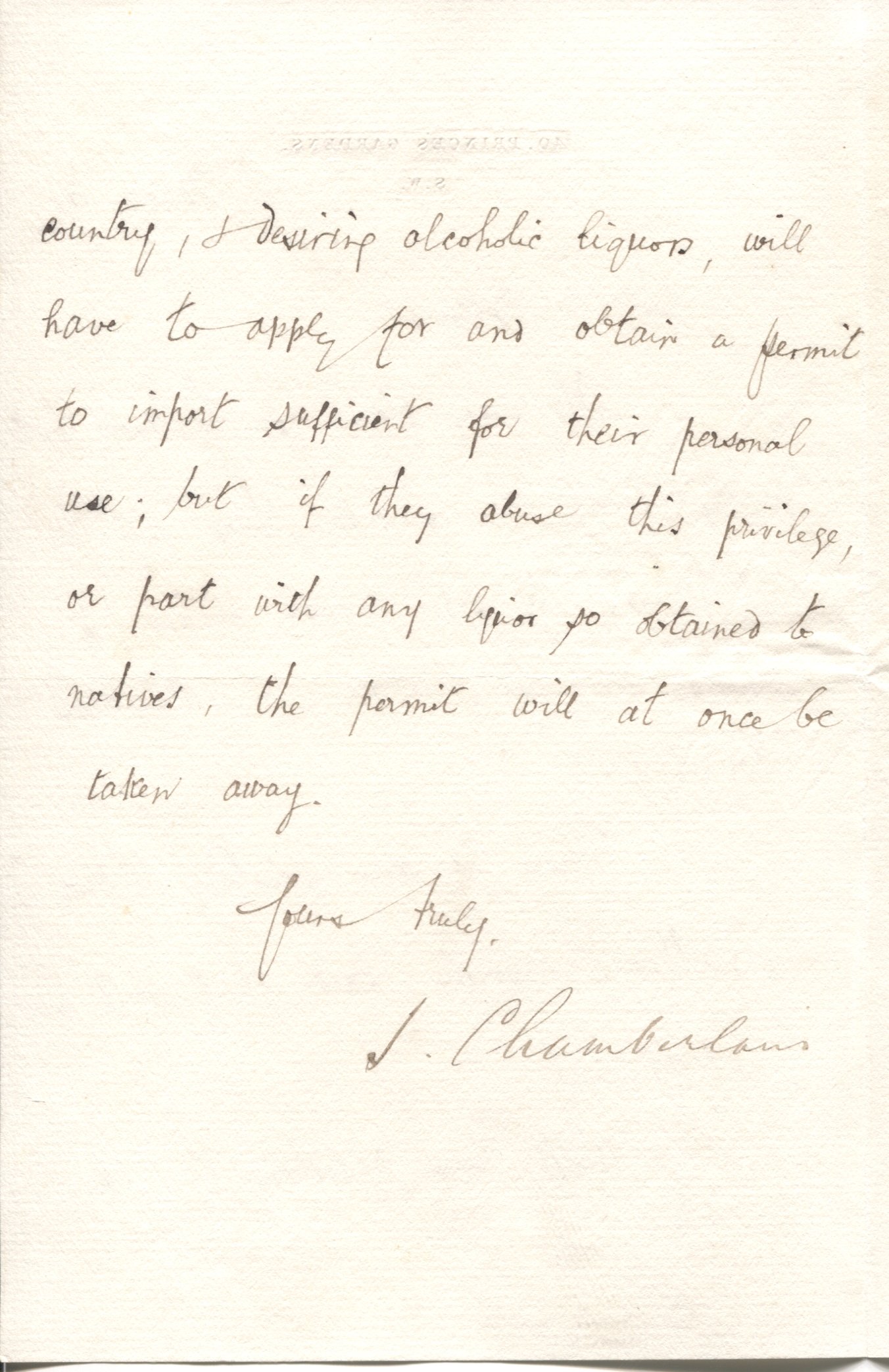
CHAMBERLAIN STOPS LICENCES TO SELL LIQUOR IN BOTSWANA
CHAMBERLAIN
(Joseph, 1836-1914, M.P. for Birmingham, from 1891 Leader of the Liberal Unionists, Secretary for the Colonies 1895-1903)
Fine Letter Signed to Mr BELLOWS
(John Thomas, 1831-1902, Polymath, Printer and Lexicographer) posaying that “it may please you to know that in the final arrangements there will be no licences to sell liquor either to whites or to blacks in Khama’s country. There is one existing. licence in Bathoen’s reserve, but that will be extinguished. White men residing in the country, & desiring alcoholic liquors, will have to apply for and obtain a permit to import sufficient for their personal use, but if they abuse this privilege, or part with any liquor so obtained to natives, the permit will at once be taken away...”, 2 sides 8vo., 40 Prince’s Gardens headed paper, 23rd November together with Bellow’s Autograph reply, saying that he is very “grateful... as I am sure everyone will be who has felt an interest in the Bechuana Chiefs, for the care and judgement with which those that brought their matter to a settlement honorable to England and laying a firm foundation stone for the Empire in Africa...”, 1 side 8vo.,
Khama’s Country was in Botswana. San (Bushmen) were the aboriginal inhabitants but they constitute only a small portion of the population today. The Tswana supplanted the San, who remained as subjects. Beginning in the 1820s, the region was disrupted by the expansion of the Zulu and their offshoot, the Ndebele. However, Khama II, chief of the Ngwato (the largest Tswana nation), curbed the depredations of the Ndebele and established a fairly unified state. A new threat arose in the late 19th cent. with the incursion of Boers (Afrikaners) from neighboring Transvaal. After gold was discovered in the region in 1867, the Transvaal government sought to annex parts of Botswana. Although the British forbade annexation, the Boers continued to encroach on native lands during the 1870s and 80s. German colonial expansion in South West Africa (Namibia) caused the British to reexamine their policies, and, urged on by Khama III, they established (1884–85) a protectorate called Bechuanaland. Britain provided for the eventual transfer of Bechuanaland to the Union of South Africa.
From the 1895 general election the Liberal Unionists were in coalition with the Conservative Party, under Chamberlain's former opponent Lord Salisbury. In that government Chamberlain served as Secretary of State for the Colonies, promoting a variety of schemes to build up the Empire in Asia, Africa, and the West Indies. He had major responsibility for causing the Second Boer War (1899–1902) in South Africa and was the government minister most responsible for the war effort.
Item Date:
1895
Stock No:
41848


<< Back